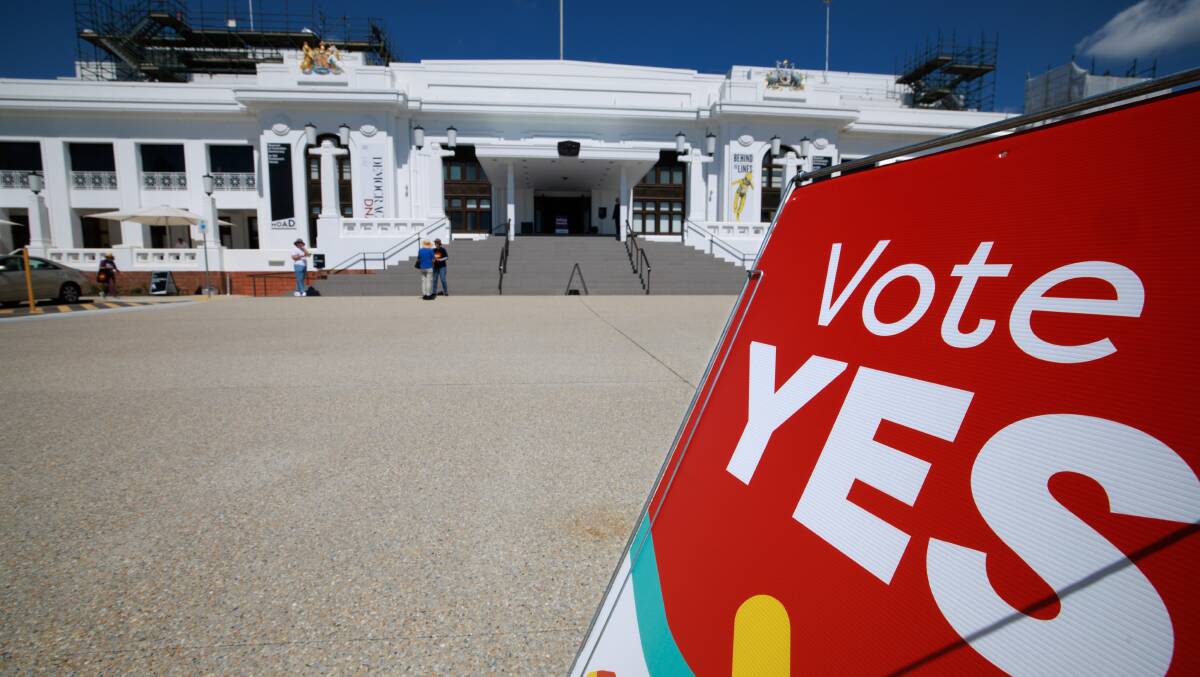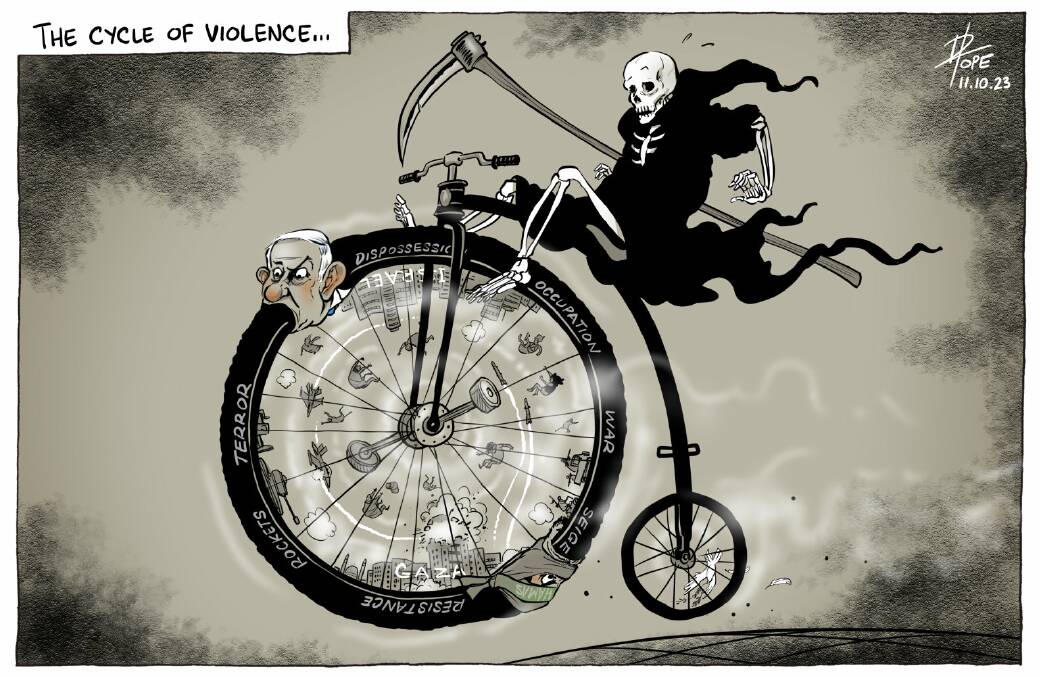This is a sample of The Echidna newsletter sent out each weekday morning. To sign up for FREE, go to theechidna.com.au
Subscribe now for unlimited access.
or signup to continue reading
We hear a great deal from young people who want to be able to vote at 16. Good on them. I thoroughly endorse the idea of broadening political participation. These are the folks who inherit the future so should surely have some say on how it pans out. The latest polling shows over two-thirds of people under 34 support the voice to parliament. And over 55s? Only one in four supports the voice.
That's clearly where we need to do a rethink. This is the heartland of the "don't know, vote no" crowd.
Now I'm not exactly proposing a disenfranchisement of anyone over 55 (that would be counting myself out and my goodness, I love my vote). But in the same way we have to do a new driving test when we get to a particular age, maybe we need to have a similar test about citizenship, participation and civic engagement.
What do Australians really know about our political process? UTS senior lecturer Keith Heggart researches civics education in Australia and he is rightly troubled by the "don't know, vote no" people.

He writes: "It privileges a passive and limited conception of citizenship that is at odds with what it means to be a citizen in Australia, and makes a mockery of Australia's long history of civic action and engagement."
Let's face it. We aren't French. We aren't on the streets every single day, sharing our views. But we aren't too frightened to speak up and speak out.
And the people who think they should vote no because they don't know?
"[That] privileges wilful ignorance, and outsources the responsibility for informed democracy to politicians, rather than the citizens themselves, and in doing so, insults every Australian who has taken the time to explore the arguments for and against the Aboriginal and Torres Strait Islander Voice to Parliament."
When Heggart was an undergraduate, he used to believe you should earn your right to participate in democracy. Of course he's come a long way since then (and he's reminded me that everyone has the right to participate).
And he definitely, 100 per cent, does not endorse my idea of a citizenship test (although I swear to god, maybe it could be an adjunct to year 10 exams).
But he has ideas about how to change this for the future. First, fixing the concentration of media ownership in Australia would encourage a broader range of views. The University of Adelaide's Victoria Fielding reveals the disparity between reporting in Murdoch papers (largely balanced) and the commentary (hugely lopsided).
"Get outside your bubble and have the hard conversations," he says. What happens if you are like me and just won't let go of the argument?
"You also have to know when to walk away," he reminds me. That's a lesson I need to learn after all these years.
What makes us think differently? That's a hard one, says Heggart. We tend to back in our teams and stay backed in.
"We find it hard to change our minds even when our team is on the wrong side of history."
Sadly I have had to let go of the idea of disenfranchisement on the basis of people "not knowing". But I will say this. If you don't know, for all our sake, find out.

HAVE YOUR SAY: (and don't forget that the earlier you email on the topic of the day, the more likely you are to have parts of your contribution published). Do you feel like you know enough about how the political process works in Australia? Should we lower the voting age to 16? What makes you change your mind? What's the go with voting no? Email us at echidna@theechidna.com.au
SHARE THE LOVE: If you enjoy The Echidna, forward it to a friend so they can sign up too.
IN CASE YOU MISSED IT:
- Oil prices are on the rise in the wake of the Hamas attack on Israel with predictions Australia will experience a big rise at the bowser. Diesel prices will be hardest hit.
- Is Peter Costello on the way out? The federal government is looking for an outsider to head up the Future Fund amid a drive for renewal at the sovereign wealth fund. Costello's term ends in February.
- Finally women are allowed to wear shorts at work (at least in Canberra Hospital). Now let's extend that rule to school girls everywhere.
- And could squash be included at the 2028 Olympic Games? It will have to beat cricket, lacrosse, baseball, softball and American flag football. Surely not American flag football.
WHAT THEY SAID: "Australians have chosen and they have chosen hope. Australians have chosen and they have looked to the future. A better future for all." Penny Wong on election night, 2022.
WHAT YOU SAID: I asked you where you would like to see mobile phones banned. And how long you can do without your phone.
Graham says he has his phone switched off in order to avoid cold calls. And: "There is a definite need for us to develop a code of cell phone etiquette."
And Anita observes good mobile phone behaviour when she's on the train. "I can report everyone is on their phone quietly sending texts, doing Wordle or other engrossing puzzles. One could conclude the only individuals not engaged, lack the tech savvy to do so. The weight of evidence is confirmed by the relative age of the non-users. Mobile phones are a boon to the otherwise bored traveller but, probably not a good idea in class, though evidence for the success of banning is weak."
Bob has already made a stand. "We have let our phones rule our lives. You don't have to take or make that call there and then, as there are few things in life that have to be done immediately. I can mostly do without mine, and it's linked to my desktop.
"Very early on, I adopted a philosophy of 'be where you are'. When I was working, I was at work, not on the phone; when I'm out with friends, that's where I am, not on the phone; and when I'm out walking, that's where I am, not on the phone (and it's safer too). It's a much-less-stress life."
Lee's already made positive changes: "When I run a meeting phones are turned off, unless you can tell me about the crisis you are averting right at this time."
And Ian writes: "I was a late adopter of a mobile phone. I can easily remember not having one, and recall no sense of nakedness, aloneness, or missing out. Now that I have one I hyperventilate with panic if I can't see it or touch it or remember where I put it ... I recently discovered the pleasure of listening to podcasts or music, yes, on earphones, while walking the dog, only to also discover the new thing is not doing that, called 'silent walking'."


